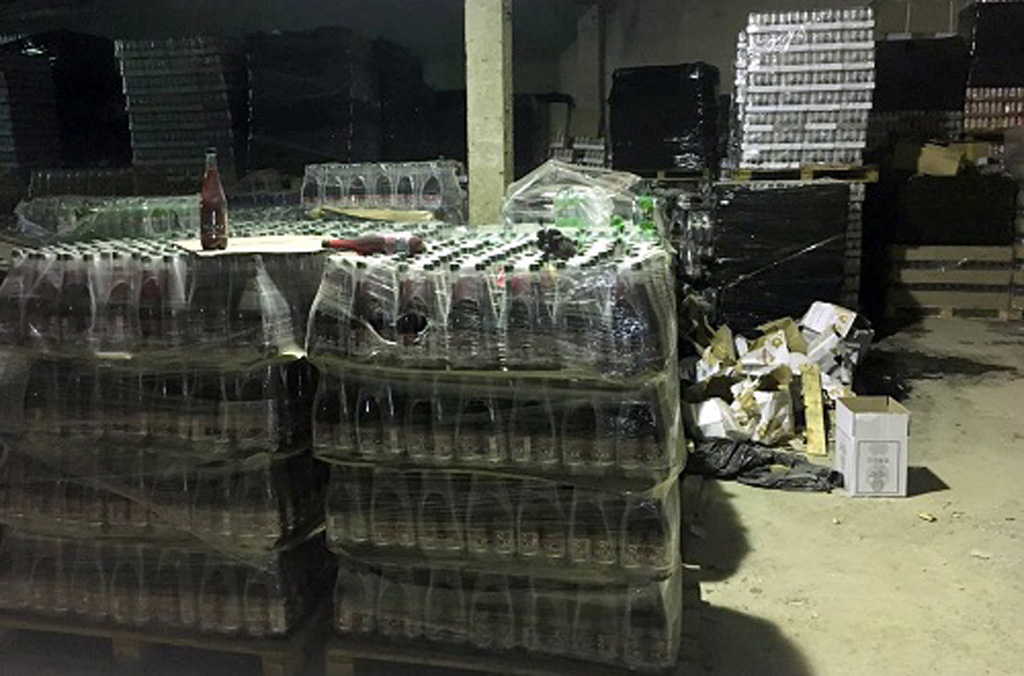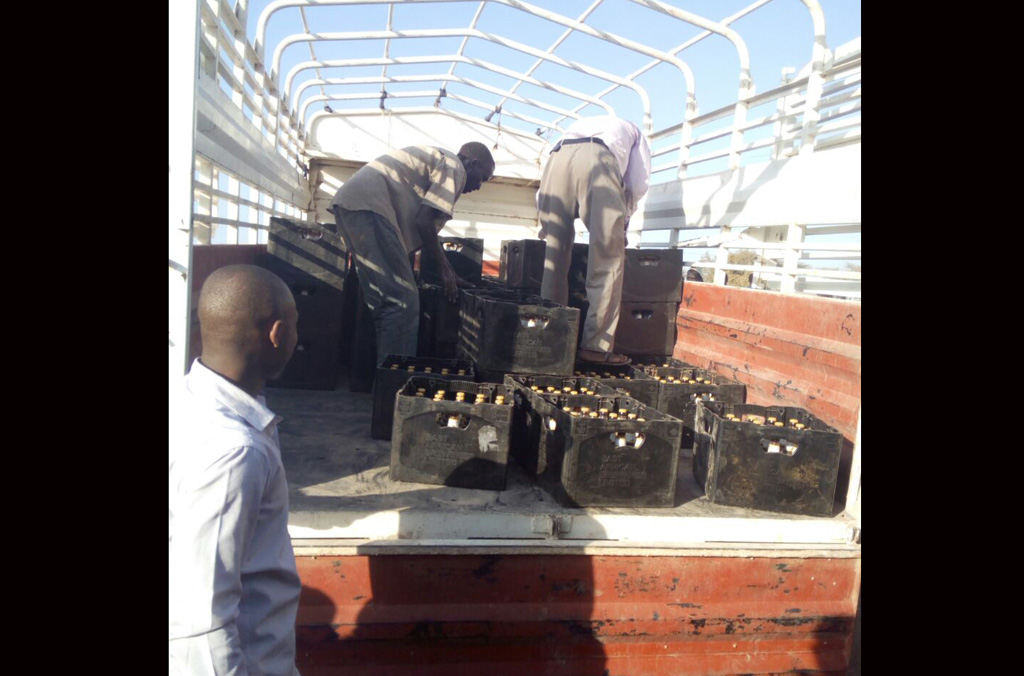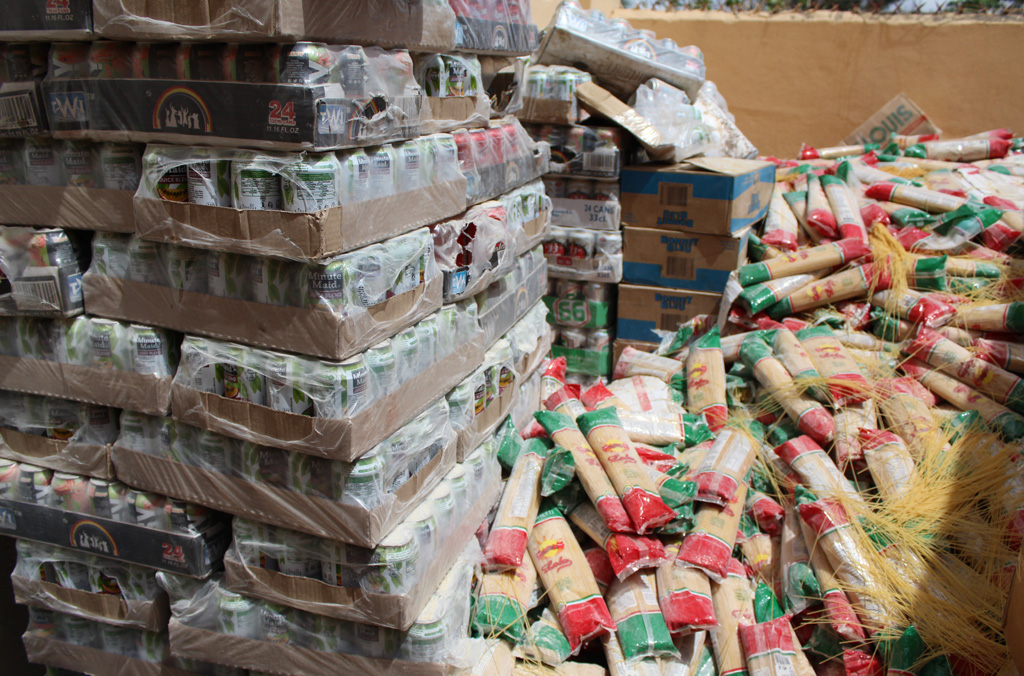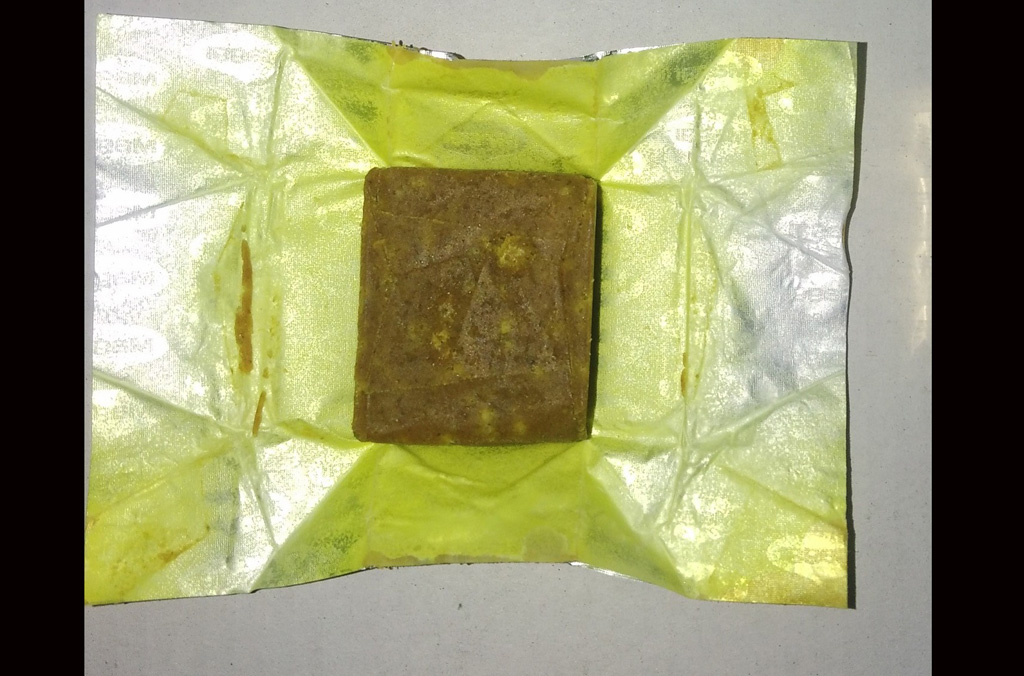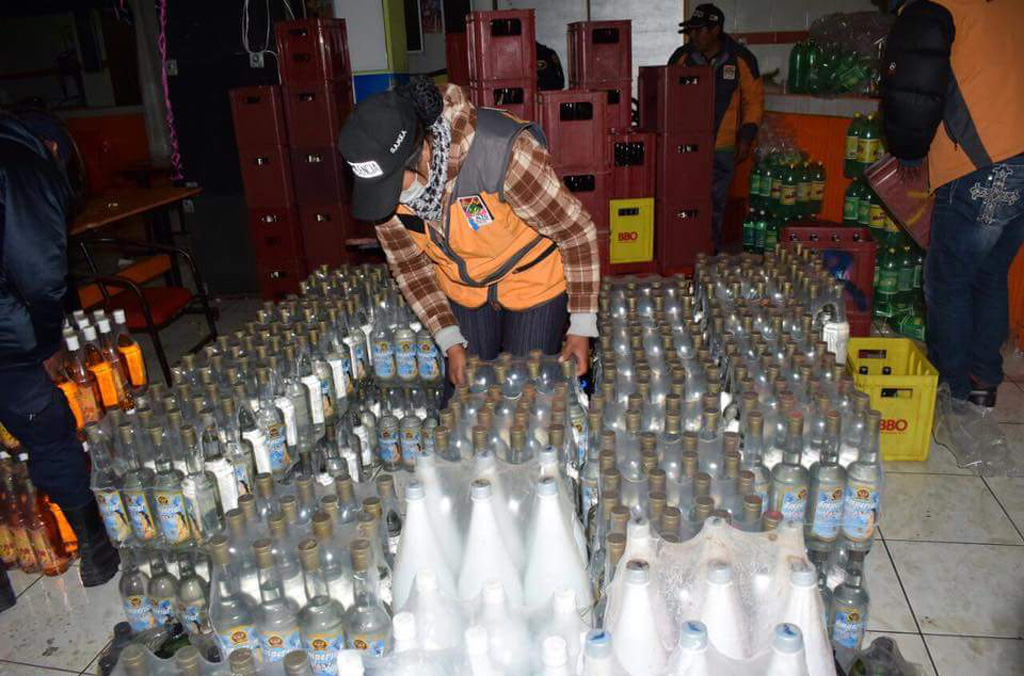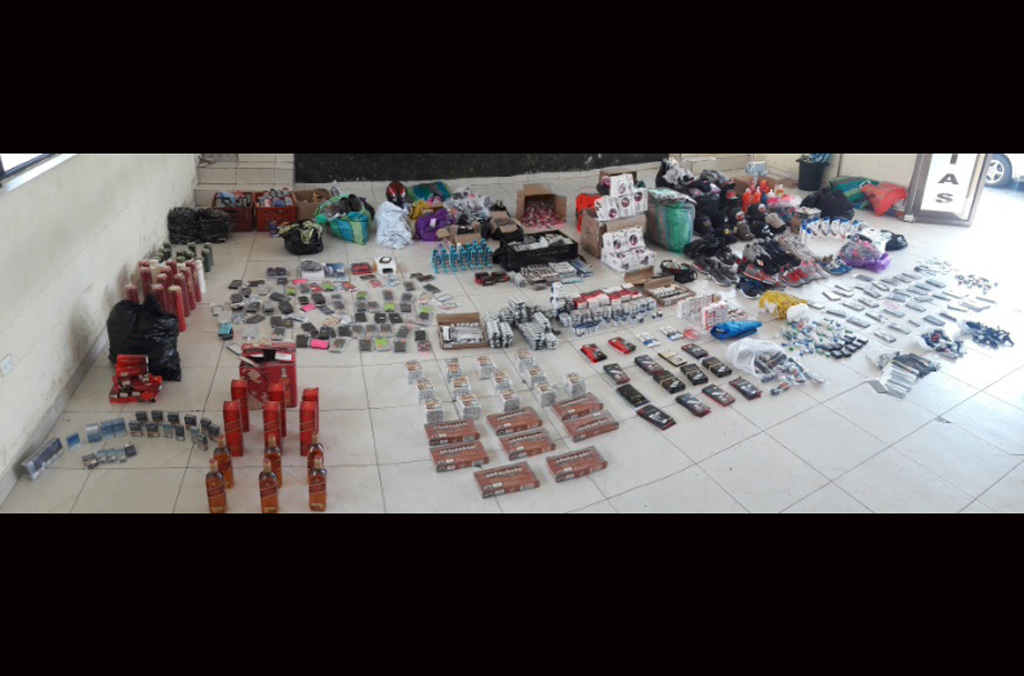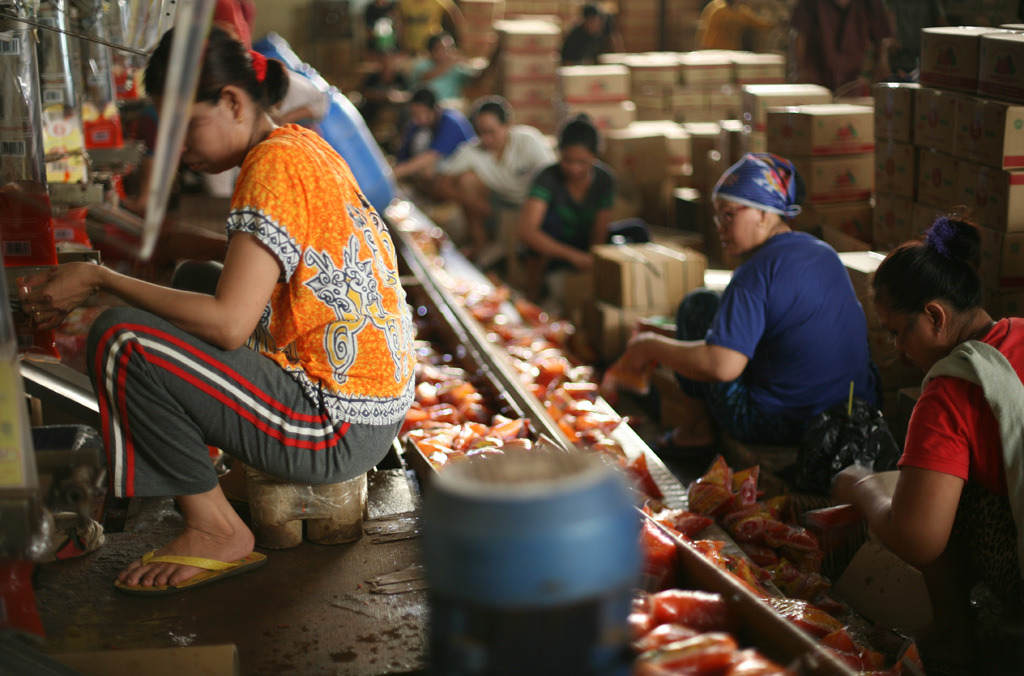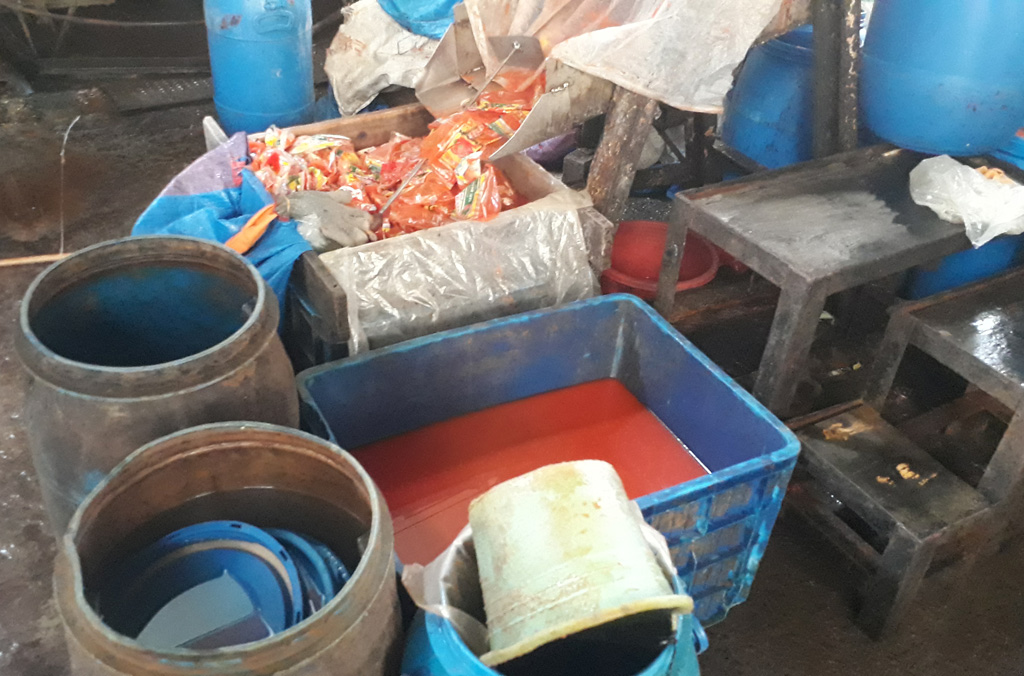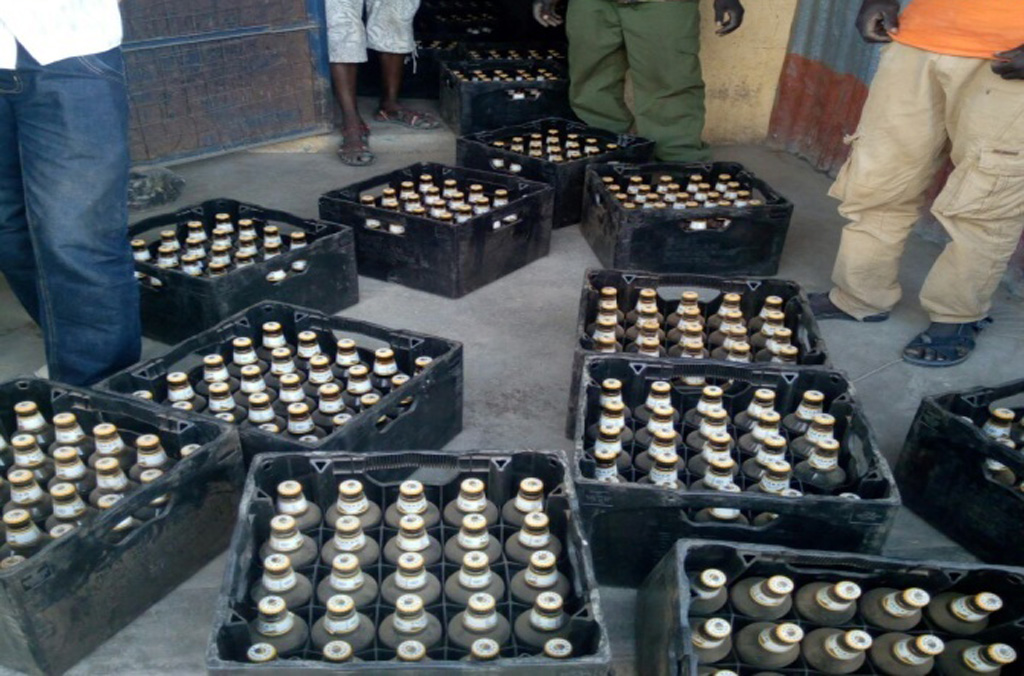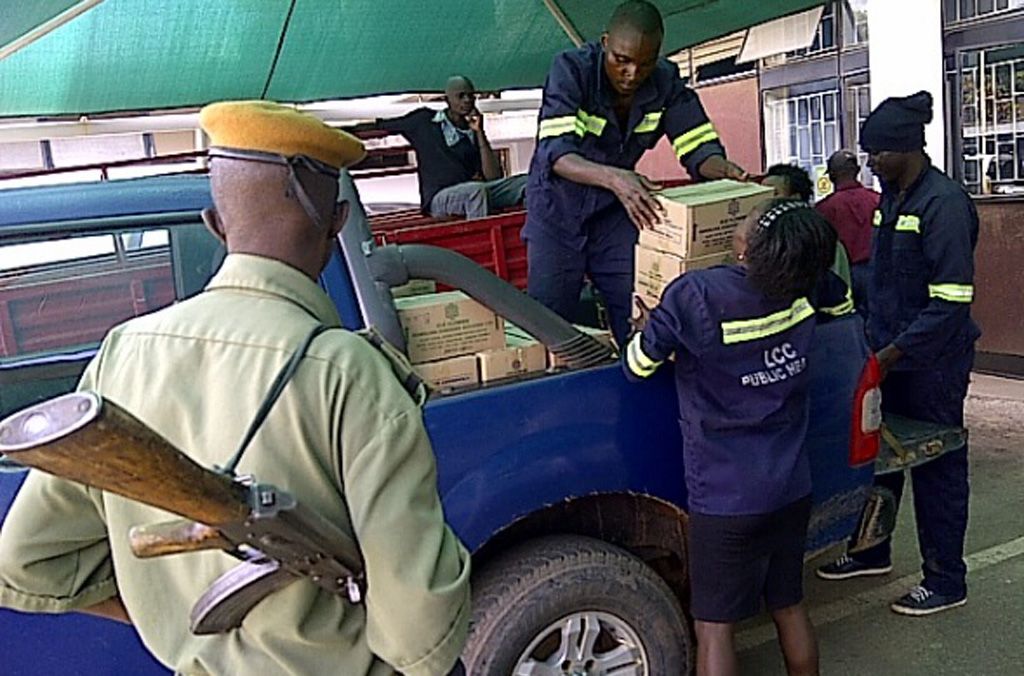Nearly 26 million litres of fake alcohol has been seized in a joint INTERPOL-Europol operation targeting fake food and drink around the world.
In the sixth Operation Opson, which involved police, customs, national food regulatory authorities and partners from the private sector in 61 countries, counterfeit alcohol was the most seized product, followed by meat and seafood.
Conducted between 1 December 2016 and 31 March 2017, more than 9,800 tonnes and 26.4 million litres of hazardous fake food and drink worth an estimated EUR 230 million were seized during some 50,000 checks at shops, markets, airports, seaports and industrial estates.
“This operation has once again shown that criminals will fake any type of food and drink with no thought to the human cost as long as they make a profit. Whilst thousands of counterfeit goods have been taken out of circulation, we continue to encourage the public to remain vigilant about the products they buy,” said Françoise Dorcier, Coordinator of INTERPOL’s Illicit Goods and Global Health Programme.
"Opson VI confirmed the threat that food fraud represents, as it affects all types of products and all regions of the world. In addition we saw some new trends such as counterfeit mineral water. Once again the good cooperation on a European and global level was paramount to disrupt the criminal gangs behind the illicit trade in counterfeit and unregulated food and drink," said Chris Vansteenkiste, head of Europol's Intellectual Property Crime Coordinated Coalition - IPC3.
A key aim of the operation is to identify and disrupt the organized crime networks behind the trafficking in fake goods, and enhance cooperation between the enforcement authorities involved. A number of arrests have already been made with investigations still ongoing.
With organized crime groups often using the same networks for other types of crime, drugs and fake medicines were also recovered during the operation. In Djibouti 150 kg of marijuana was seized and Colombian authorities dismantled a criminal network trading in falsified medicines including treatments for cancer, HIV and diabetes.
Case studies
African region
- In Togo, national police dismantled a criminal network behind the distribution of expired food and drink. Nearly 1,000 canned drinks and 2,000 boxes of pasta were seized.
- Rwandan National Police seized a range of fake foods and alcohol, including counterfeit whiskey.
- In Nigeria, the National Agency for Food and Drug Administration and Control seized more than 51 litres of fake champagne.
Americas region
- A luggage check at Buenos Aires bus terminal in Argentina revealed five boxes containing 1,287 bottles of ‘dietary supplement and high performance fat burning’ pills. The tablets had been banned in the US as they contained substances which could cause heart attacks and strokes. An INTERPOL Purple Notice – to seek or provide information on modi operandi, objects, devices and concealment methods used by criminals - has been circulated to all 190 member countries relating to this seizure.
- Peruvian authorities seized expired food, drinks and preparation substances, including colorants, estimated at around EUR 145,500. More than 6 kg of fat was found in poor storage conditions with traces of insects and rats discovered in the preparation area.
- Authorities in Ecuador identified and dismantled a criminal organization smuggling a range of illicit products, including food and medicines, into the country from Colombia.
Asian region
- In Indonesia the National Agency of Drug and Food Control discovered a factory producing a range of fake condiments and sauces in unsanitary conditions. Nearly 32,000 boxes worth an estimated EUR 360,000 were recovered and tests showed the products contained additives exceeding recommended maximum amounts.
- Investigations in South Korea revealed a scam dating back to 2013 in which the suspects had manipulated the packaging of freshwater snails to significantly increase their weight. The operation is estimated to have generated nearly EUR3.5 million over a three-year period.
- Officials in Thailand identified a factory illicitly producing fish sauce in unsanitary conditions in addition to seizing 8,000 kg of illegally imported buffalo meat.
European region
- Italian Carabinieri dismantled an organized crime network involved in the production and distribution of fake wine, with Florence’s Antimafia unit arresting three individuals. At the base of operations, a Tuscan farm, investigators discovered counterfeit packaging materials, 9,000 litres of fake wine and 30 litres of pure alcohol which was being used to adulterate the wine.
- In Russia, police dismantled a number of illegal alcohol production and distribution networks. In Leningrad, officers discovered a factory producing and bottling sub-standard alcohol and using faked federal stamps to fool consumers.
- Some 311,000 cans of fish were seized following a raid on a factory in Porto by the Portuguese Food Safety and Economic Authority. The plant’s license to process food had previously been withdrawn and illicit activities included repacking almost expired goods.
- In France, customs officers seized nearly 180,000 fake stock cubes following a search of a wholesalers premises near Paris.
- An analysis of olive oil sold in supermarkets by the Danish Veterinary and Food Administration to check compliance with labelling rules, revealed numerous samples were actually blended oils.
- Spanish authorities dismantled an organized crime network using forged documents to certify good manufacturing processes for shellfish which were discovered to be unfit for human consumption.




